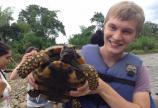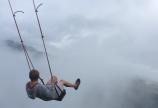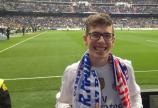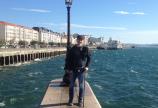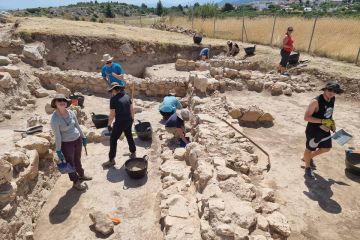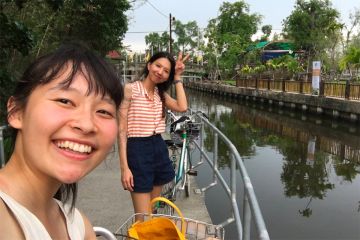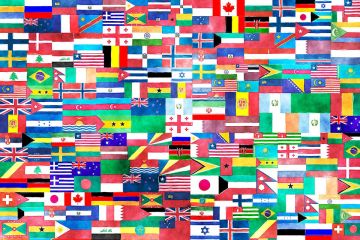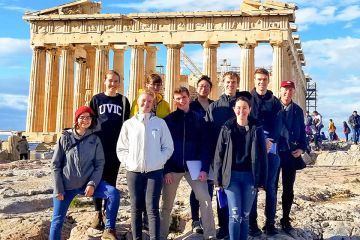Exchange experience immerses two students deeper into Hispanic studies
- Tara Sharpe
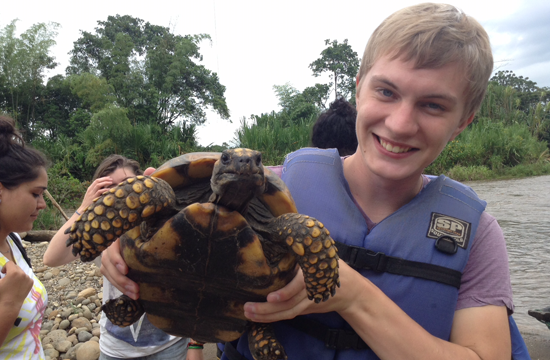
The “Study Abroad” programs offered by the Department of Hispanic and Italian Studies left two UVic undergraduate students last year not only with an amplified fluency for Spanish but also with unforgettable memories and an incomparable immersion in language and culture.
In 2015, the department—in partnership with the Universidad de Cuenca (Ecuador) and the Universidad de Alcalá (Spain)—offered 15 UVic students intensive language classes for the fall term in Cuenca and Alcalá de Henares respectively, complemented by cultural and literary readings, volunteer opportunities, field trips and visits to museums.
Studying abroad, a transformational experience
“Language and living in a foreign country is transformational at a very basic level,” explained Pablo Restrepo-Gautier, acting chair of the department last year, while the students were away. “It’s like ‘day’ and ‘night’ when the students return to campus – they are suddenly so very aware of the world outside Canada and their hometowns.”
Cuenca, located 2,500 m above sea level, is a vibrant cultural nexus of Ecuador nestled within the Andes Mountains. Everett (“Dane”) Rogers, a second-year student majoring in Hispanic and Italian studies combined with French and a minor in German, is from Seattle and hopes to be a translator for the UN or a government body once he graduates from UVic.
At school in the Andes
He “decided on a whim” to go to Cuenca and there discovered an instant interest in teaching English while volunteering instructing several Indigenous children in the province of Loja in southern Ecuador – and now he is also considering ESL as part of his university education. He says he came to UVic “for what I’m getting: some of the best language programs and exchange opportunities anywhere, on a campus that’s just the right size.”
When he arrived in Ecuador, he had to acclimatize.
While still adjusting to the altitude, he quickly became out of breath scaling the steep staircase leading up from the river to the old town where his homestay was situated, above the newer part of Cuenca where the school is located.
It took him 25 minutes to walk – downhill – to school each day. Classes ran 9 a.m. to 1:30 p.m., then broke for lunch, the longest meal of the day: “It is usually three to four courses, with lots of soup and more rice than you could ever eat.” Another regional food – which he did not eat – was roast Andean rat or “cuy” (pronounced KOO-ee).
The nightlife in Cuenca “is wild and crazy, with lots of discotheques.” One of his best memories is when his school group (which included students from New Mexico and Michigan, as well as the six from UVic) took a weekend excursion to Máncora on the coast of Per&u#180;: at night, it felt like the “whole city ‘wakes up’ and heads down to dance in the water, which is warmer than the air.
“The Hispanic and Latin American culture is very warm too. The people are so dramatic, and kind.” Lights were strung along the beach like a trail leading to his future, which he is completely certain will include a myriad mix of culture and language.
An immersive experience in Spain
Isaac Nazaroff’s experience was somewhat different than that of his peer’s “because Spain is considered a ‘first world’ country, but the people are just as passionate and it feels just as tight knit.”
A third-year student majoring in Hispanic studies, Nazaroff journeyed to Alcalá, a city of 200,000 people just outside Madrid in the heart of Spain. Alcalá is a popular tourist destination with significant archaeological interest and, like Cuenca, is a UNESCO World Heritage Site.
Nazaroff himself comes from “a town of 5,000 people” – Oliver, South Okanagan – and had visited Barcelona the year before with his parents. Alcalá was a welcome choice.
“And Spain is its own thing: life is a lot more relaxed than home, but there’s ‘rush’ when there needs to be.” Like Rogers, he took classes from 9 a.m. to 1:30 p.m. But then siesta would shut everything down at approximately 3 p.m. for two to three hours. “At the time of dinner back home, everything starts back up again. Is it 8 p.m.? That’s still afternoon in Alcalá!” After a couple of weeks, he adjusted to not eating dinner till 9 p.m. Like in Cuenca, lunch was the biggest meal anyway: fried fish with spine-on and cooked in olive oil; fried eggs and fries; chorizo sausages; baguette-like bread; and paella.
“I knew I wanted to further my knowledge of Spanish,” Nazaroff says. “And I think the only way to really do that is to go on a full immersion experience.”
He first chose UVic not only because his parents are alumni, but because he wanted to “get out of the Okanagan” and, like Rogers, he finds UVic to be “just the right size. But it is also a really respectful university. It’s very accepting.
“Back in Spain, the relationships I cultivated with the host family and teachers will be long lasting and I’ll never forget my host mother.” Not to mention his new girlfriend, whom he met there – “a pivotal part of the trip.”
What he found particularly beneficial academically was how the program is “UVic Abroad,” with all credits transferable and grades submitted as smoothly as if the professors in Alcalá were here within Ring Road.
A seamless academic experience
The two programs are aimed at students who have finished first-year Spanish (Ecuador) or second-year Spanish (Spain). Upon successful completion, students earn full credit of 7.5 units. Last year was the first year that UVic joined the Ecuadorian program.
The department also offers a four-week program in Recanati, Italy during the summer for students in the Italian program.
Contact the Department of Hispanic and Italian Studies at spanit@uvic.ca for details.
More info: bit.ly/1RMnTYy
Photos
In this story
Keywords: study abroad, student life, international, South America, Europe, partnerships, Hispanic and Italian studies

